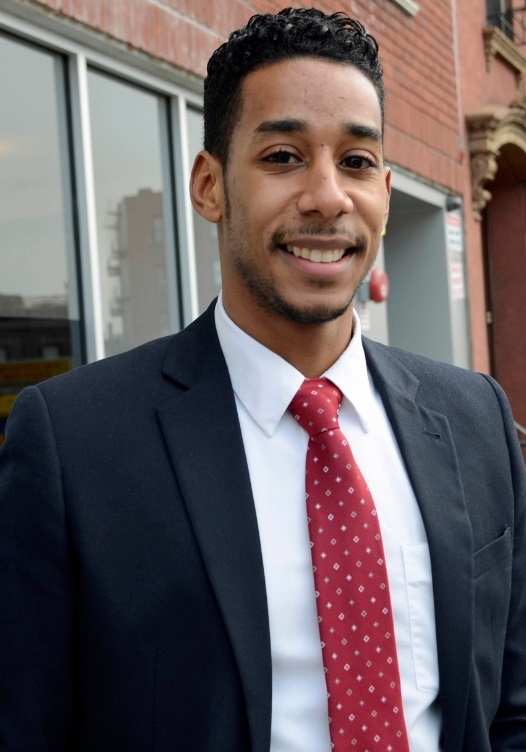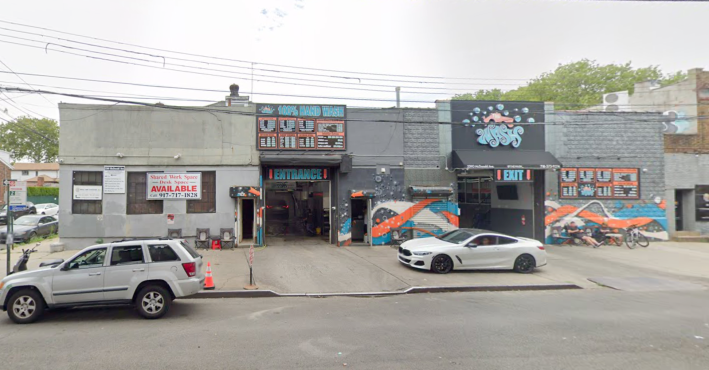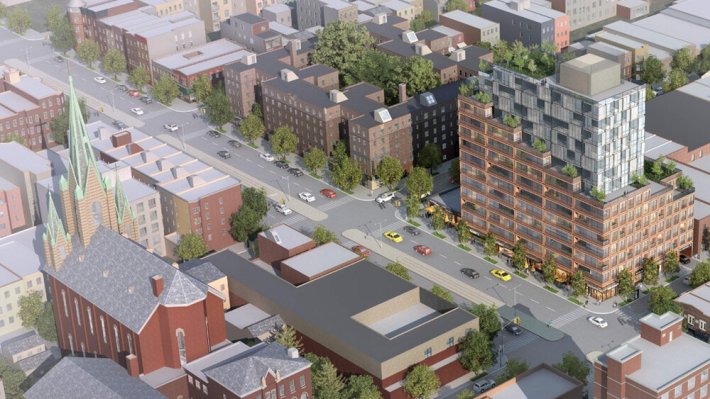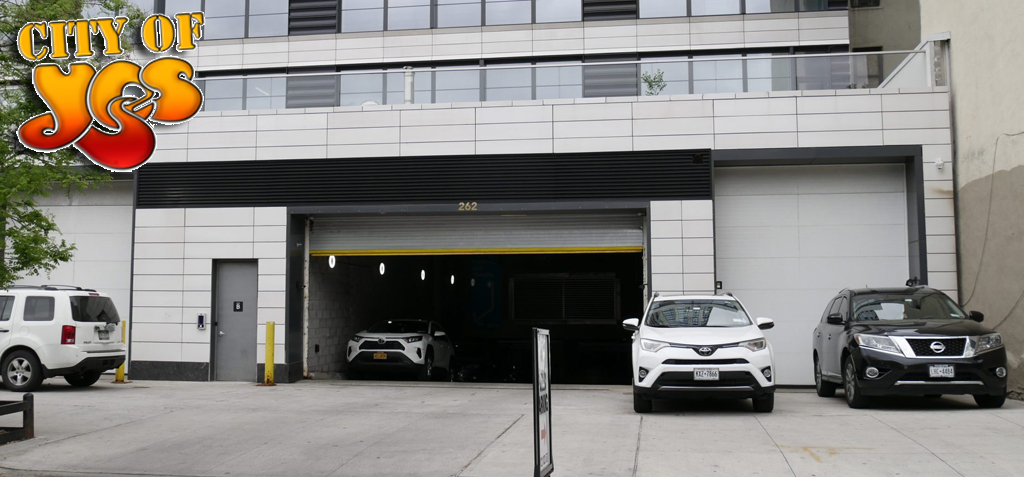City of Yes ... and?
Brooklyn Borough President Antonio Reynoso is pushing back on opponents of Mayor Adams's signature city-wide rezoning proposal by asking the city to go further by setting a low ceiling on the amount of costly parking spaces a developer is required to build rather than merely permitting, but not requiring, builders to create none.
“Our recommendation is to remove as much parking as possible, but [if a] developer feels an obligation to put in a certain amount of parking, there should be a maximum allowable in transit-rich areas,” Reynoso told Streetsblog.
The City of Yes for Housing Opportunity — the rezoning in question — inspired nearly 300 New Yorkers to take time out of their day to testify at a 15-hour public hearing hosted by the City Planning Commission.

During the hearing, some opponents scorned the mayor's desire to let developers decide how much parking to build at their new projects rather than set a required minimum amount. Both sides agree that removing the mandatory minimum will lead to the construction of less off-street parking, which supporters say will create more, and cheaper, housing, and reduce the incentive to purchase cars. But opponents believe that if new developments don't have off-street parking, new residents will still buy cars ... and then park them on the street and "take" existing residents' spaces. (Studies show that readily available parking incentivizes car purchases.)
“Of all the planning issues that exist in the city, parking is the most like a religious conflict,” said Howard Slatkin, the executive director of the Citizen’s Housing and Planning Council, a non-profit working to advance public initiatives that meet New York’s housing needs. "It's argued as a matter of faith rather than as a practical matter."
But for the Adams administration, parking is a practical core of the effort to build more housing: The average cost of building one underground parking space in New York City is $67,500, meaning that it is often higher. Each space built increases a developer's costs, which drives up the already high cost to buy or rent a new unit. The median rent for a one-bedroom in New York City this June was $4,300 — almost double the state median, according to a recent report from Zumpner.
“There's tremendous cost [to building underground parking], there's a lot of risk because a lot could go wrong,” said Lee Cohen, of RedHoek+, a development company that primarily builds condos in South Brooklyn. “Besides the money aspect of it, the logistics are hard and add a lot of time to a project. A lot of developers just say, ‘You know what — the hell with this,’ and don’t bother.”
So far the borough presidents of Brooklyn, Manhattan, The Bronx, and Staten Island have issued their recommendation on the plan to the commission, with Staten Island being the lone "no" on City of Yes (Queens Borough President Donovan Richards has not filed a formal recommendation yet).
But unlike the other City of Yes supporters, Reynoso’s recommendation pushes the city to go even further, by creating parking maximums in Brooklyn for buildings near transit similar to rules established in 1982 for the “Manhattan Core.” (The maximums range from 20 percent to 35 percent of units, depending on neighborhood, but no new buildings in the core, regardless of their size, can have more than 200 parking spaces.)
That approach "should be expanded to Brooklyn and other outer boroughs to further facilitate transit-oriented development near significant transit and jobs hubs such as Downtown Brooklyn, Atlantic Terminal, and the Northside of Williamsburg,” reads the recommendation.
Reynoso's recommendation would discourage developers from overbuilding parking, or caving to community pressure top add more parking than the developer thought was right.

For example, the developers of a lot at 2390 MacDonald Ave. in Gravesend are planning to build 120 spaces — 90 more than required under current zoning — even though the 80-unit mixed-use proposal is two blocks from an F train station, and near multiple bus stops. It is this type of parking that Reynoso wants the city to step in and stop.
Another development at 737 Fourth Ave. in Brooklyn’s Sunset Park neighborhood is a part of a city affordable housing program, which since 2016 has not required parking. The development is right next to the R train and both the B63 bus and the B37 bus are a block away. Even so, the building will have 107 market-rate units, 35 affordable units ... and 52 underground parking spaces.
That's what the community apparently wanted.

“A lot of the community-based groups still put a value on parking, we weren’t able to eliminate the parking completely because the community board really asked us not to do that,” said Tucker Reed, principal at Totem, the development company behind the project.
In the Bronx, a rezoning proposal around new Metro-North stations will have no required parking, but the developers have already committed to building hundreds of spaces anyway. Bronx Borough President Vanessa Gibson said she wanted a parking requirement to remain.
That's the power of car culture — that even next to train stations, developers should be required to build parking, Reynoso said.
“New York historically has been knee deep in car culture, we have a lot of work to do, to inform and educate the masses on the importance of public transportation, and alternatives to single-occupancy like vehicle driving," he said. "[At this] time, people are just afraid of change.”
The planning commission will weigh the community’s comment before voting on whether to pass the plan onto the city council as-is, or make modifications. The mayor appoints the planning commission’s chair, who is also the director of the Department of City Planning, and six other members of the commission. The five borough presidents and Public Advocate Jumanne Williams each get one selection to the panel, giving the mayor the majority of appointees.
Removing the outdated mandates would still be a step in the right direction, even if there are more tools the city could use to wean New Yorkers off automobiles.
“Getting this passed with everything in it is the most important thing,” said Reynoso.






